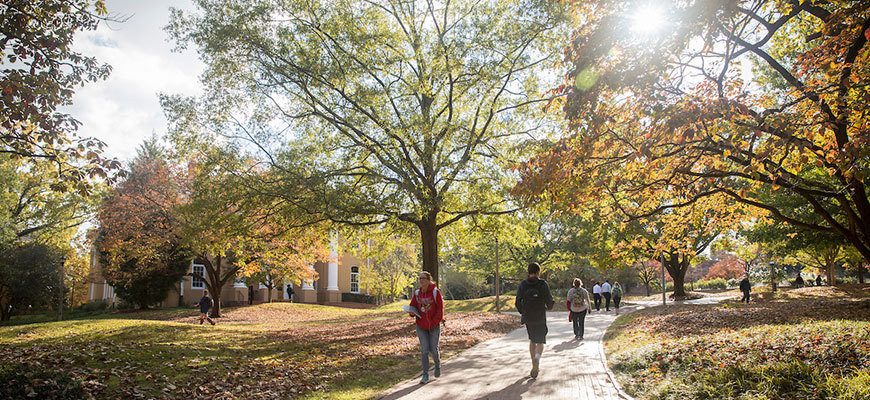The University of South Carolina’s Rising Star Fellowship will provide funding to HBCU students interested in pursuing graduate studies.
The University of South Carolina has started a fellowship aimed at increasing diversity in its graduate school ranks. Through partnerships with historically black colleges and universities across the state, the Rising Star Fellowship will remove financial barriers for underrepresented students interested in continuing their education.
“We are committed to making every effort to expand diversity and inclusion at the University of South Carolina, and we are excited to be working collaboratively with our state’s HBCU campuses to recruit and retain the talent here in the Palmetto State,” Interim President Harris Pastides said. “Through initiatives such as this, I hope we can increase diversity and improve access to higher education for underrepresented minority students in South Carolina.”
Recipients of the fellowship will receive funding to help offset the costs of tuition, health insurance and other associated fees. HBCU students who enroll in 4+1 or 3+2 programs at South Carolina will receive a stipend of $5,000 per year for up to two years of enrollment in the university's graduate programs. Students pursuing their master’s degree at South Carolina will receive a stipend of $5,000 per year for up to two years. And students pursuing their doctoral degree will receive a stipend of $10,000 per year for up to four years.
“Partnerships like this one between the university and historical black colleges and universities are important because it will help undergraduates from all backgrounds envision an advanced degree in their future,” says Julian Williams, vice president for diversity, equity and inclusion. “No one should feel like earning a graduate degree from a flagship university like UofSC is unattainable. As South Carolina’s flagship university we should be a destination for graduate students of color. This institutional commitment and others like it will help us fulfill that promise.”
This fellowship comes on the heels of a recent announcement by the university’s graduate school and Office of the Provost announcing increased funding of the Grace Jordan McFadden Professors Program — a program that aims to diversify faculty ranks through increased funding to underrepresented minority students pursuing their graduate studies at the university. In fall 2020, 19 percent of South Carolina’s graduate student body were underrepresented minority students. Through initiatives such as GJMPP and the Rising Star Fellowship, the university hopes to have these students comprise 25 percent of its graduate and professional enrollment by 2025.
No one should feel like earning a graduate degree from a flagship university like UofSC is unattainable.
Julian Williams, vice president for diversity, equity and inclusion
“The goal is, ultimately, to increase the diversity of our graduate school population,” says Tracey Weldon, vice provost at South Carolina and dean of The Graduate School. “And I think that should start in the state of South Carolina. So, we are hoping that this initiative will signal a commitment to partnering with our local HBCUs to recruit and retain the talent in South Carolina.”
While the Rising Star Fellowship is beginning as a pilot program, it has the potential to greatly impact the state of South Carolina for years to come.
“I think the impact of this fellowship will be multi-generational,” says Stephen Cutler, interim provost at South Carolina. “Efforts such as these are integral to ensuring that our most talented students remain in our state. If we can retain them as they pursue higher education and graduate education, then hopefully they will also stay and build their careers in South Carolina. This could benefit South Carolinians for many generations.”
